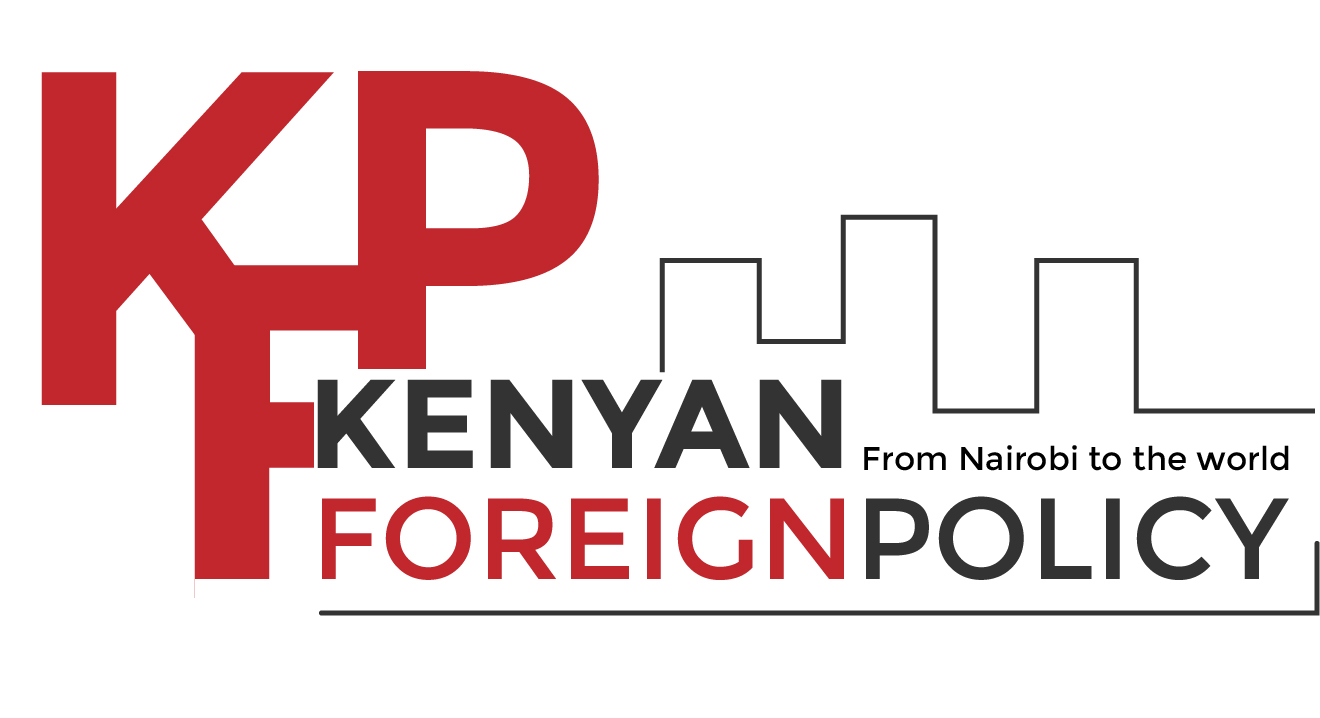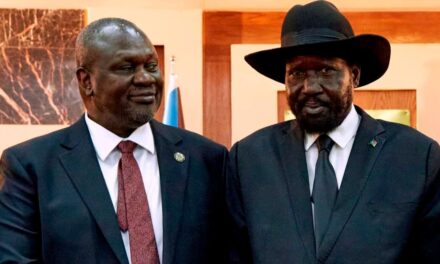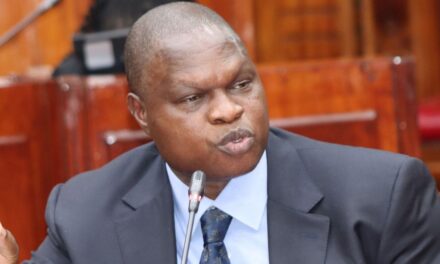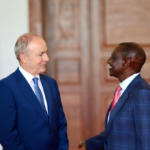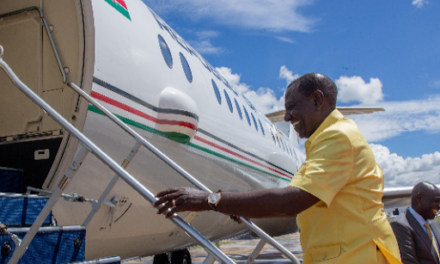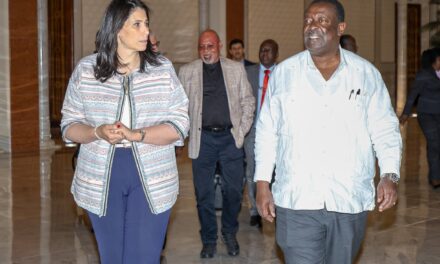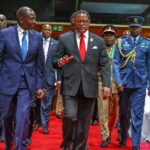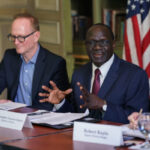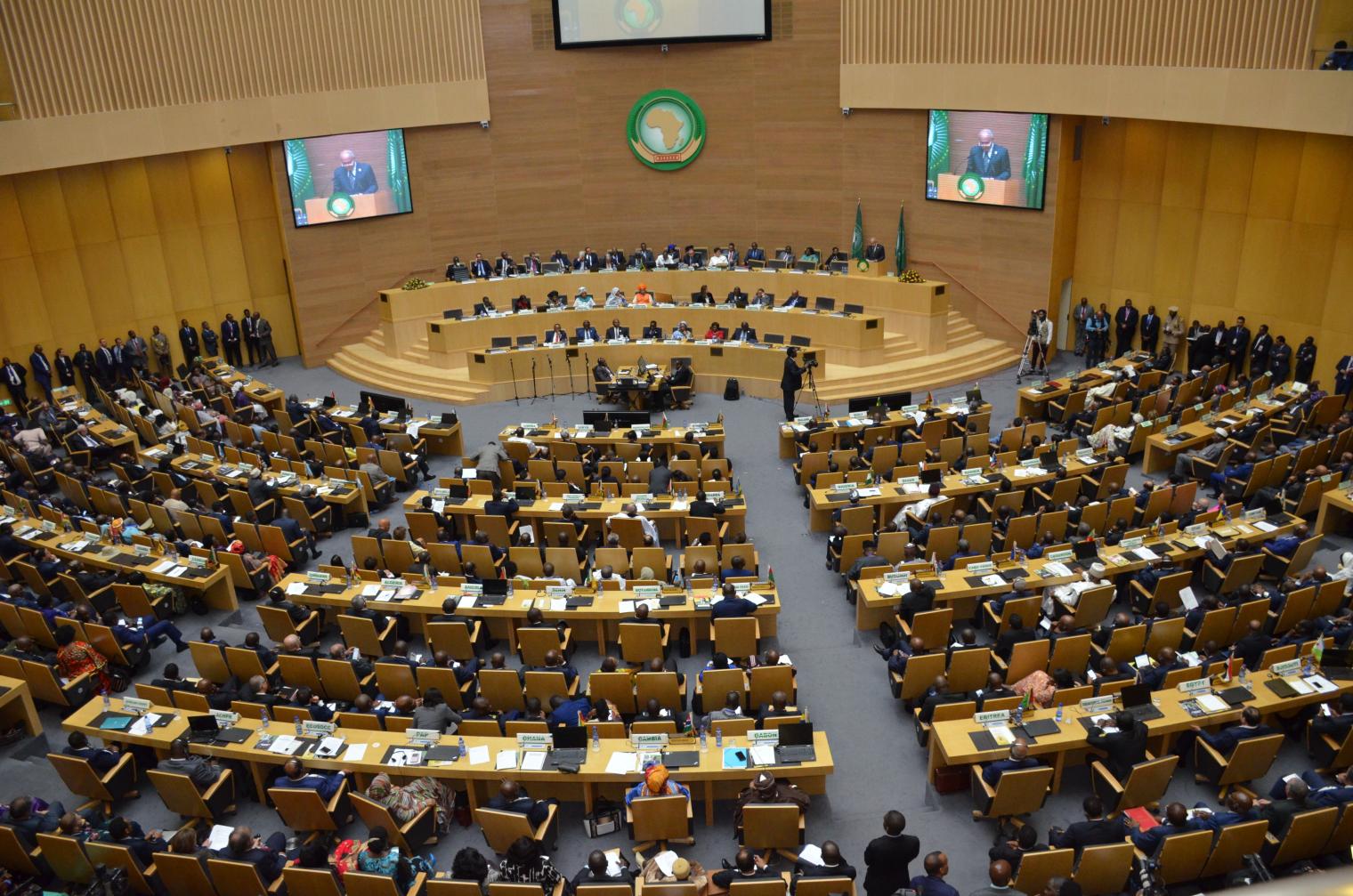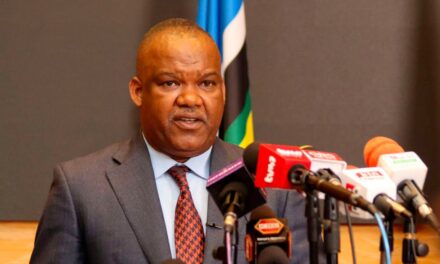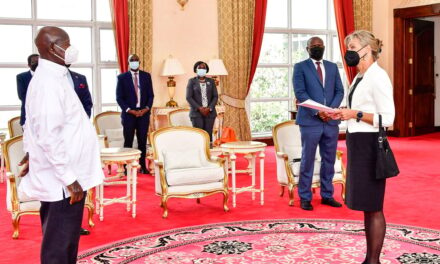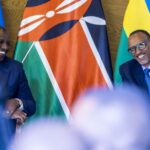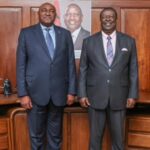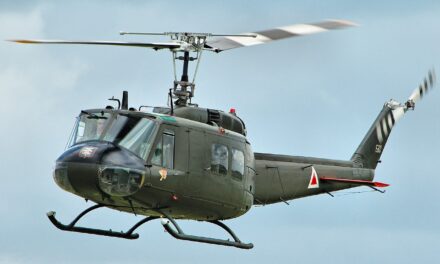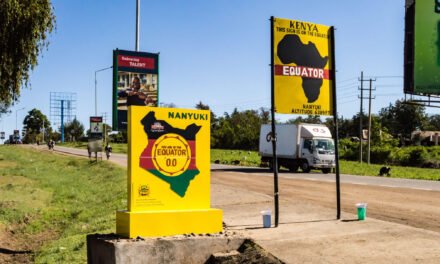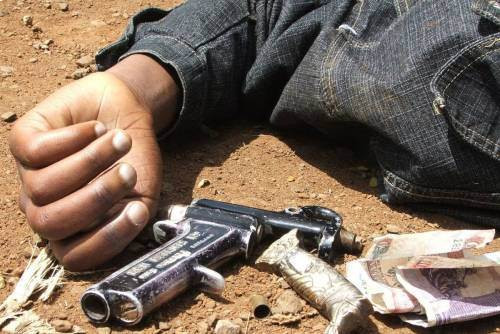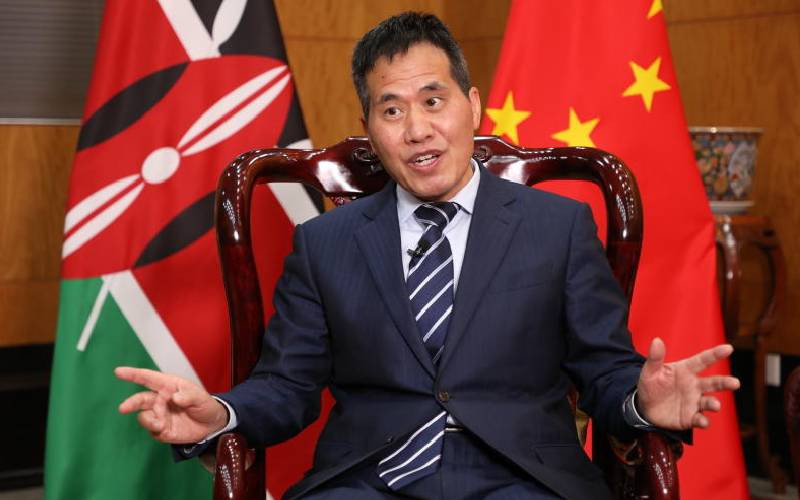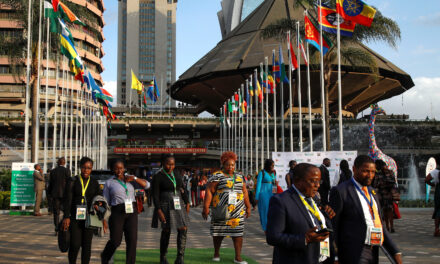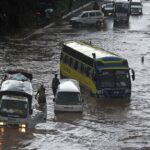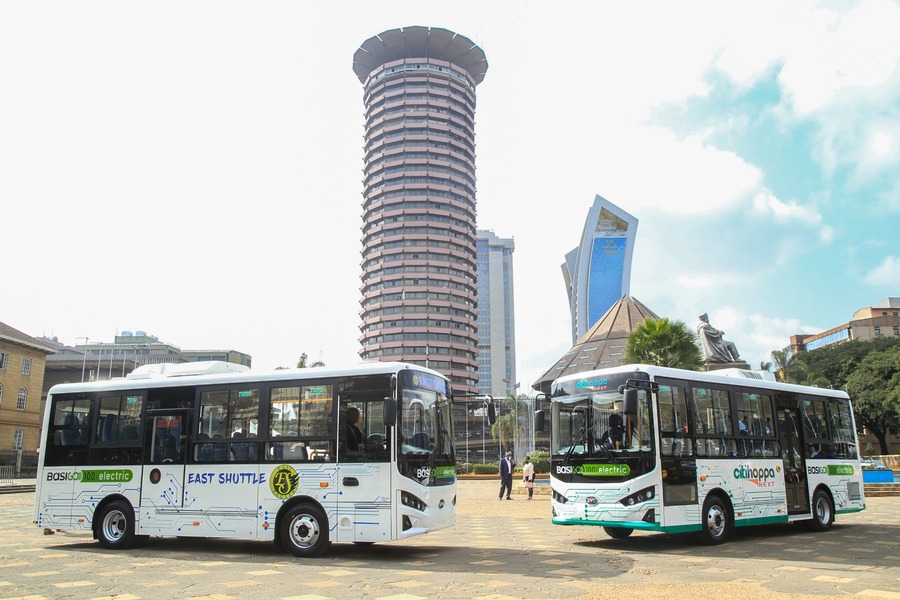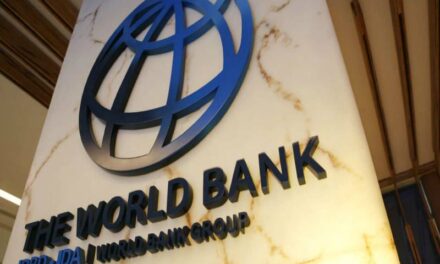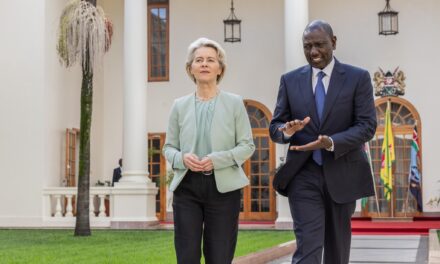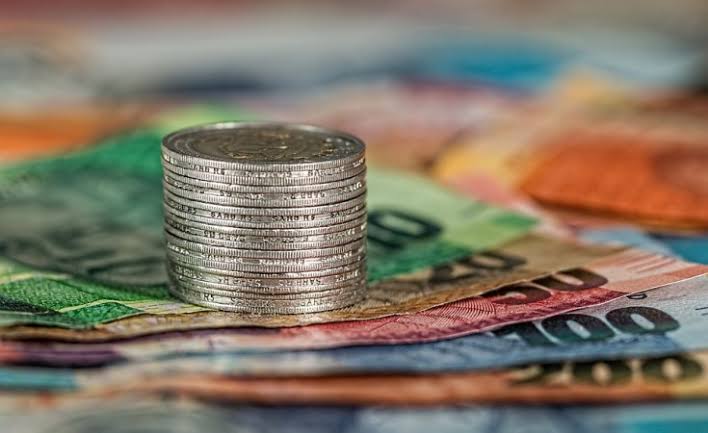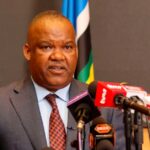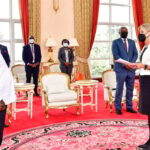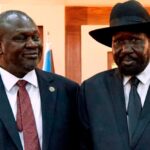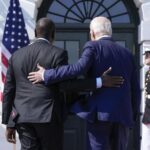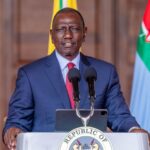
Ruto’s Busy Diplomatic Month and the Tightrope He Will Walk On
Posted by Mwangi Maina | Oct 13, 2023 | DIPLOMACY


It’s the start of a whirlwind month for President William Ruto: He will be in Beijing, China next week for the third Belt and Road Forum, and his presence is likely going to stir a flurry of reaction, not only from foreign policy observers but also key western capitals.
The big event is happening on October 17 and 18 and this will be Ruto’s maiden trip to China since he took over from Uhuru Kenyatta.
He will meet the Chinese leader Xi Jinping and some bilateral agreements, Kenyan Foreign Policy understands, will be signed between the two countries.
During his presidential campaign, President Ruto had been vocal in his criticism of Chinese loans, raising concerns about the country’s debt burden and the terms of the agreements.
Kenya has appeared to be taking a more pragmatic approach to its relationship with China even though his foreign policy at the beginning of his tenure seemed to ‘look west’.
China has been a major player in Kenya’s infrastructure development, providing significant financing for railways, highways, and ports.
This historic visit comes when Beijing is keen to dislodge Kenya’s allies again in bagging crucial deals.
They include the construction of a new Sh160 billion toll highway from Nairobi to Mau summit, which has since stalled, and the extension of the Chinese-built Standard Gauge Railway (SGR) to Malaba, near the Uganda border.
The visit will be keenly watched by diplomatic observers, and would also mark Ruto’s U-turn on his earlier rhetoric against Chinese loans.
Most importantly, Washington and London will be monitoring this visit closely to know what bilateral agreement will be signed.
China is Kenya’s largest bilateral lender and has financed infrastructure projects.
However, in Beijing, Ruto will walk on a diplomatic tightrope. He will likely encounter two leaders who have confirmed attendance: Russian President Vladimir Putin and Serbian President Aleksander Vucic.
Kenya’s Support for Ukraine
During the recent United Nations General Assembly, held against the backdrop of the ongoing Russia-Ukraine conflict, President Ruto strongly declared Kenya’s support for Ukraine. He underlined Kenya’s unwavering commitment to a global order built upon established rules and principles. This declaration wasn’t mere rhetoric; Kenya’s voting behavior at the UN has seen Nairobi consistently support resolutions that did not favor Russia.
Kosovo Diplomatic Quagmire
The other potential diplomatic hurdle President Ruto may need to clear involves Kosovo. It’s noteworthy that Kenya declared its readiness to recognize Kosovo as a sovereign state.
This announcement came after President Ruto met with the President of Kosovo, Vjosa Osmani, during the United Nations General Assembly. Kosovo, a breakaway state, isn’t universally recognized, which complicates the matter.
President Ruto’s acceptance of Kosovan passports was met with irritation by Serbian officials. Recognizing Kosovo as an independent state is a contentious issue, with several nations still withholding recognition due to diplomatic sensitivities. As a result, President Vucic of Serbia will likely express his country’s discontent when he and President Ruto cross paths in China.
From East, he will revert to Nairobi for Mashujaa Day Celebrations, to be observed on 20 October to honor those who contributed towards the struggle for Kenya’s independence.
Angolan President Joao Lourenco will be the chief guest. His visit comes at a time when Kenya is facing a hard time leading the regional force in the Eastern Congo, and Kinshasa seems to pay attention when Angola speaks. Ruto will likely try to leverage this for success in the volatile region, which the DRC, has said, won’t renew the mandate of the force and they have to leave in December.
The following week, Ruto will host the Polish President Andrzej Duda, a member of NATO and a staunch supporter of Ukraine at State House, Nairobi for bilateral talks. One of the key issues that will be discussed will be the impact of the Russian-Ukraine war.
This visit by Duda is also seen as one that seeks to neutralize Belarus’s endeavors in the continent and will come months after the Belarusian Foreign Minister Sergey Aleinik visited Kenya and an agriculture deal to supply tractors was sealed.
Tensions have been running high at Poland’s border with Belarus, which marks the edge of the European Union.
Poland recognizes the independence of Kosovo as an independent state.
Hail to the King
To end the month of October, President Ruto will host the former colonial master, King of Great Britain and Northern Ireland on an emotionally charged visit to Kenya.
Notably, this marks his first official trip to a commonwealth country since asceding to the throne.
The significance of this visit is not lost on observers, as it evokes memories of his mother, Queen Elizabeth II, whose reign began in Kenya following the death of her father, King George VI, in February 1952.
However, amid the nostalgia and anticipation of this visit, a cloud of controversy and scandal looms large. The King’s visit coincides with the launch of a parliamentary inquiry into alleged atrocities committed by some rogue British soldiers on Kenyan soil, including grave human rights violations, such as sexual abuse and murder, particularly in Laikipia county.
One unresolved case that casts a long shadow is the brutal murder of Agnes Wanjiru, a 21-year-old hairdresser in Laikipia in 2012. Her tragic death, with her body found in a hotel septic tank, remains unsolved, and no one has been held accountable.
President Ruto will have a fantastic opportunity to not only remind the visiting UK monarch of the harsh colonial legacy that still exists 60 years later but also to discuss what has to be done to put the past behind us. Kenyans are hoping that a red carpet will not bury all of these issues.
RELATED
UK’s King Kenya’s Visit Marred by Controversy, Calls for Justice
Your support empowers us to deliver quality global journalism. Whether big or small, every contribution is valuable to our mission and readers.
